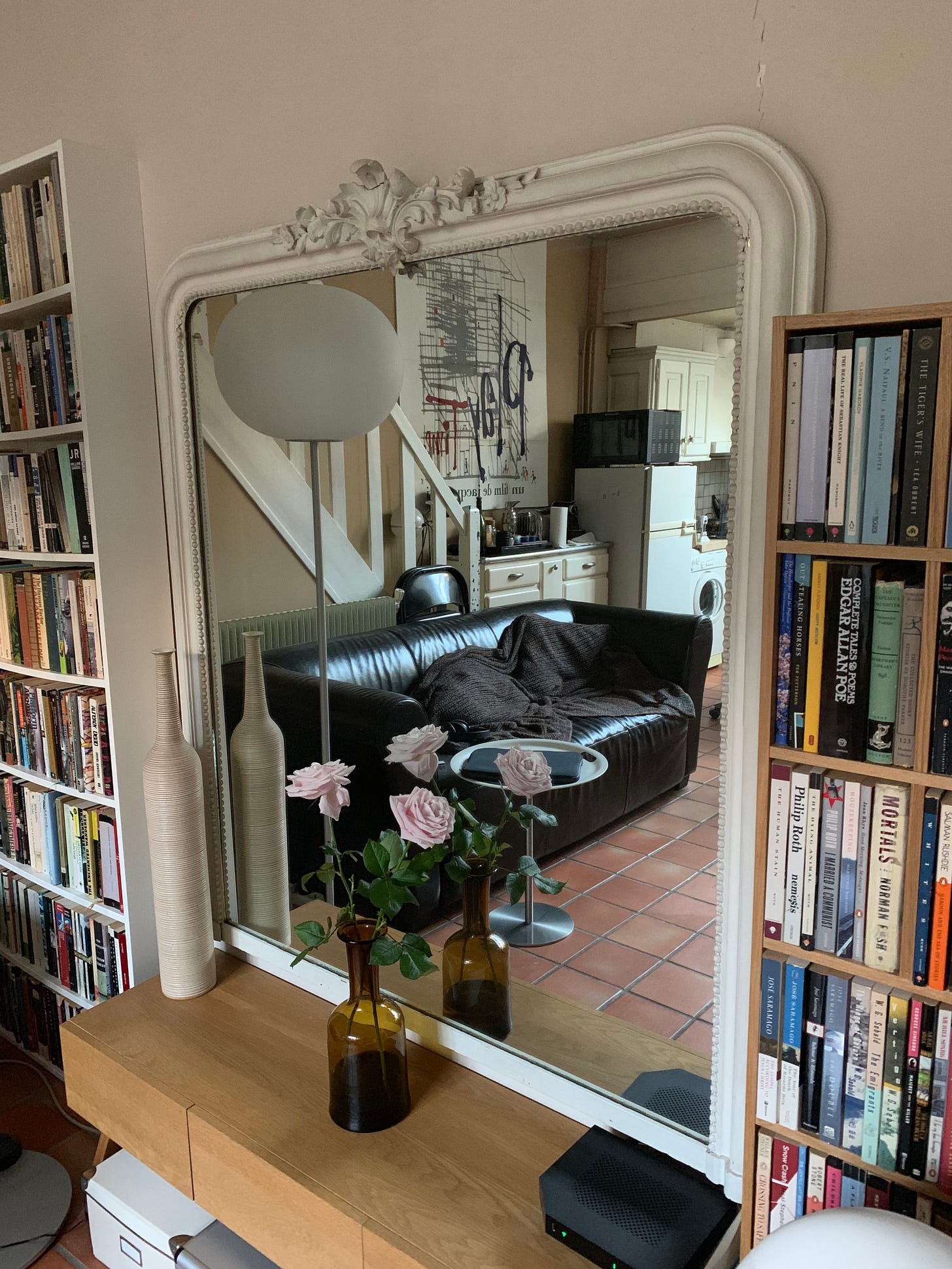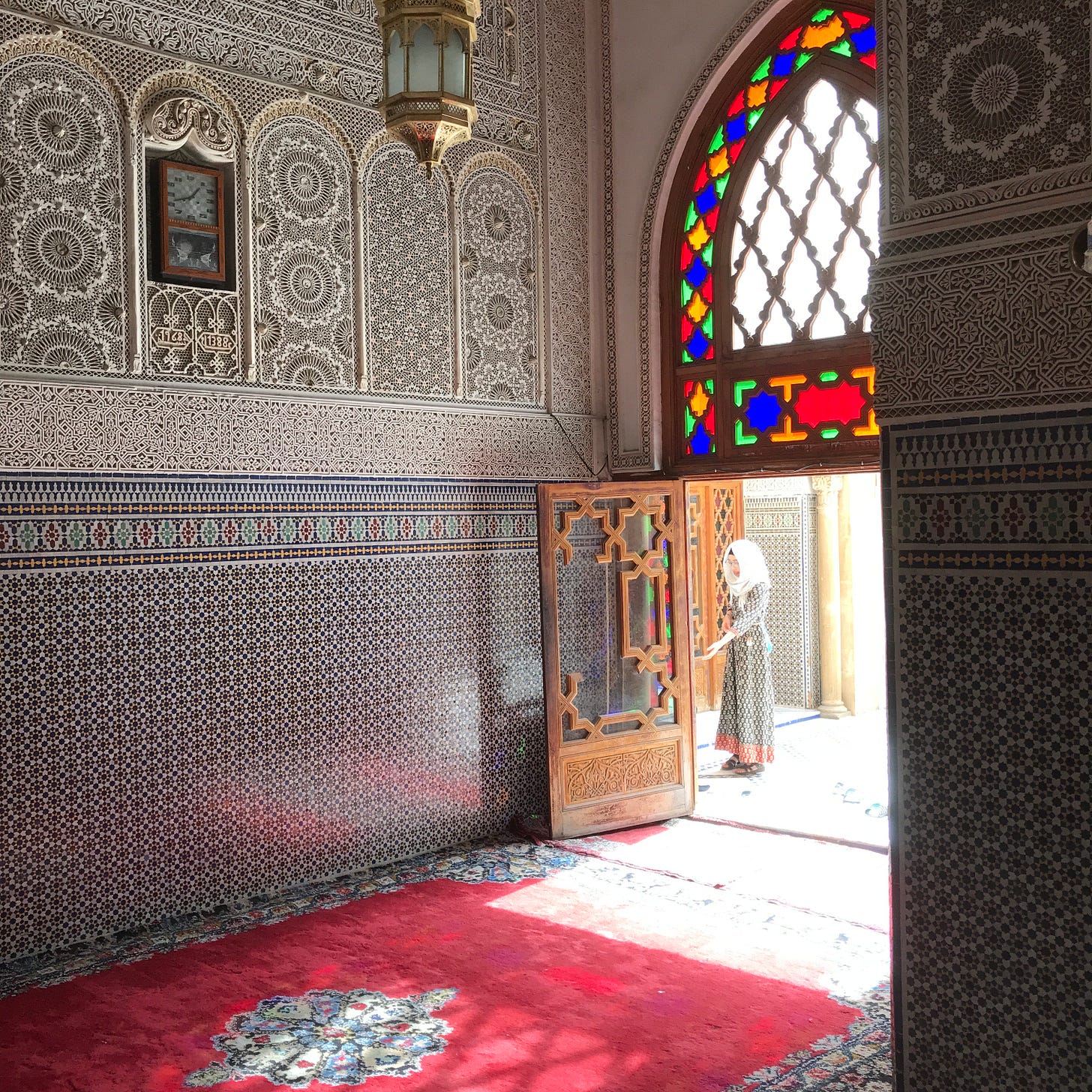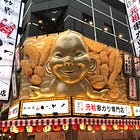Taking the Plunge into Nomad Life
On chance, change, and finding a home in writing—an origin story
I’m Claire Polders, a Dutch author and nomad.
I was born in Gouda—yes from the cheese—studied philosophy, moved to Paris, married an American, fell in love with Japan, and publish essays about my travels, my life, and my writing.
Below, is my 6-act story of why I became a nomad in my early forties and might stay one for a while.
1. Stuck in Paris
I was on the lookout when change came and found me.
In 2018, I felt stuck. After two decades of writing, working, and loving in the same charming yet moldy atelier in Paris, my life had stopped flowing.
The luminous city that had once inspired my novels, now seemed to hold me back. There were tall graffitied walls wherever I walked, blocking the scarce winter light. The summers were getting hotter, the air more toxic. The aftermath of the 2015 terrorist attacks hovered darkly over the city, and the rising social unrest of the Yellow Vest Protests made every day feel tense.
I was also unsatisfied with my career. None of my four Dutch novels were as successful as I’d hoped they would be. I began writing in English to enlarge my potential audience, yet this created its own challenges. Competition was fiercer in the United States, where I was seeking an agent, and I felt insecure writing in a foreign tongue.
Publishing a novel with Simon & Schuster set in Paris perked me up, but I wanted to flee the city regardless. I felt like a bystander in the world, not a participant. The desire for change grew strong.
My husband, Daniel, did not want to leave. He refused to give up a home that had given him so much inspiration. Living in Paris had always been his dream.
I didn’t push for what I wanted. As much as I desired change, I also dreaded moving. Practical matters would eat up my creative time and I had trouble imagining our future. Change alone was too vague of a wish—what if we ended up someplace worse?
2. A Stroke of (Bad) Luck
Then a stroke of bad luck: Our landlady in Paris wanted to sell our home. We had first rights to buy the property, but couldn’t afford it. Banks don’t give mortgages to writers who have no steady income. Besides, the atelier wasn’t worth the asking price: one million dollars for 500 badly maintained square feet. We lived in the 6th arrondissement, one of the most expensive neighborhoods in Paris.
Renting another apartment in a similar quarter was out of the question. Rent control had kept our home affordable through the years. If we signed a new contract now, we would be paying twice as much.
Daniel was miffed that our landlady’s choices overturned his life, but I soon embraced our loss as an opportunity. The stroke of bad luck was a gain in disguise: We would finally pack up and leave!
Still, we didn’t know where to go. Each place we considered—Porto? Florence? Hydra?—had its downsides and none felt like the right one for us. Perhaps we hadn’t yet discovered our ideal place, we thought, because we had’t yet seen enough of the world.
The thought sparked an idea. Could we postpone our decision and look around for a while? Could we live nowhere and travel the world? Could we go… everywhere?
3. Deliberation
We seemed to be good candidates for a nomadic life.
We had the privilege of owning passports that gave us access to most countries in the world
We could work while on the road, writing from anywhere
We were healthy and able-bodied
We had no kids, no pets, and no parents (at the time) who relied on our care
We’d saved some money
We had inexpensive European health and liability insurance that covered us worldwide
We deeply felt the lure of the unknown
Once I calculated how we could practically and financially pull off a life of slow travel, Daniel jumped on board. We were not on the edge of losing everything. We were on the verge of expanding our lives.
4. Seeing the World
We housesat for a friend in Zollikon, a postcard-pretty suburb of Zürich. We traveled to Sicily and sublet an apartment in Venice from my Dutch literary agent. We returned to our favorite places in Greece, then ventured to Morocco, where we had to deal with our first serious bout of food poisoning while traveling by train. But how glorious Morocco was!
Just before the pandemic, we flew to Thailand and Cambodia, and when the world closed its borders in early 2020, we were happily stranded in Vietnam for nine months. Then loss happened, and we had to take care of our families in the Netherlands and the United States. When traveling became possible again, we spent six months in Mexico, returned to Vietnam, attended an artist residency in Korea, journeyed through Japan, tried out Bali, lived on a sail boat in Amsterdam, sublet an apartment near Rome, and explored the Galápagos.
5. The End?
We planned to be nomads for about two years, find the country we liked best, and settle there. Six years later, we’re still wandering.
Traveling has enriched my life in ways I hadn’t anticipated. I feel less stuck, as expected, less held back, yet I also feel more connected to the world. Almost every day, I experience what I call a “notable first” and marvel like a child. Look a dragon fruit! A lunar moth! A couple of kids transporting a wardrobe on a motor bike!
Sometimes the experience is as fleeting as the morning light falling through frosted glass, as huge as a real life elephant, or as self-revealing as a misadventure on a dangerous mountain pass.
What these moments have in common is their power to bind me to the present and change my sense of self. Each time I pause in awe, something grows between the world and me. A thread, an appreciation, an understanding. I admire what is unfamiliar to me, growing Colombian coffee or clamming in Brittany, and feel how my attention reduces the boundaries my mind made up.
I may be a foreigner roaming strange lands, yet I’m also a human animal on a planet I share with everyone and everything else. Their world is my world. And realizing this has made my life feel so much larger.
6. Writing as My Home
Don’t you miss having a home? people ask me. Sometimes I do. I don’t like the constant leaving and the inability not to go. I long for a reliable place in which to unwind, especially when I wake up with a migraine on a day our lease ends and I find myself sick, waiting at a train station.
But it helps to remind myself that I’m homeless by choice: It’s my privilege to travel. I’ve also learned how to find a sense of home no matter where I am.
I derive the most comfort from my writing. Putting things into words is a practice that travels with me and gives me a base to which I return. Like many writers before me, I live in my stories and see myself change in the stories I tell.
Theodor Adorno (1903-1969), a German philosopher, was not a nomad by choice. He was an exile fleeing from the Nazis. But his words express what I experience:
“In his text, the writer sets up house. Just as he trundles papers, books, pencils, documents untidily from room to room, he creates the same disorder in his thoughts. They become pieces of furniture that he sinks into, content or irritable. He strokes them affectionately, wears them out, mixes them up, re-arranges, ruins them. For a man who no longer has a homeland, writing becomes a place to live.”
—from Minima Moralia: Reflections from Damaged Life
Adorno doesn’t stop there, though. He goes on to explain that we shouldn’t allow leftover thoughts to pile up in our space. Such garbage tends to clutter our alertness and leave us with stale ideas.
“In the end, the writer is not even allowed to live in his writing.”
So here I am, wandering, wondering, and writing in an upward spiral with no clear end in sight. It’s an immense joy to live freely like this, trusting that I can settle again whenever I want. Where that will be? Keeping our final destination up in the air is part of the plan.
Related Essays
Related Writing Elsewhere
What did you do with all your stuff?
In my essay “From Paris to Nowhere,” published by The Smart Set in 2023, I make a case for owning less. I explain how getting rid of most of my belongings prepared me for taking the plunge into nomad life.How did you say goodbye to sentimental heirlooms?
In my column for Slate, How I Learned to Love Minimizing My Possessions, I reveal a method that might be helpful if you’d like to downsize your own belongings one day.












Very interesting story! I love how you acknowledged privileges that many of us nomads have, such as able-bodiedness and strong passports. It's so important to be aware of this! So glad I found your Substack!
I had to read it aloud to my husband. He stopped me several times to read a sentence again and discuss it. It made for an excellent start to our day, broken down in the back corner of a muddy truck stop, beginning our third day of awaiting truck parts and a mechanic, after a chaotic night of severe thunderstorms. Indeed, we are homeless by choice, and our kind of travel is a privilege.